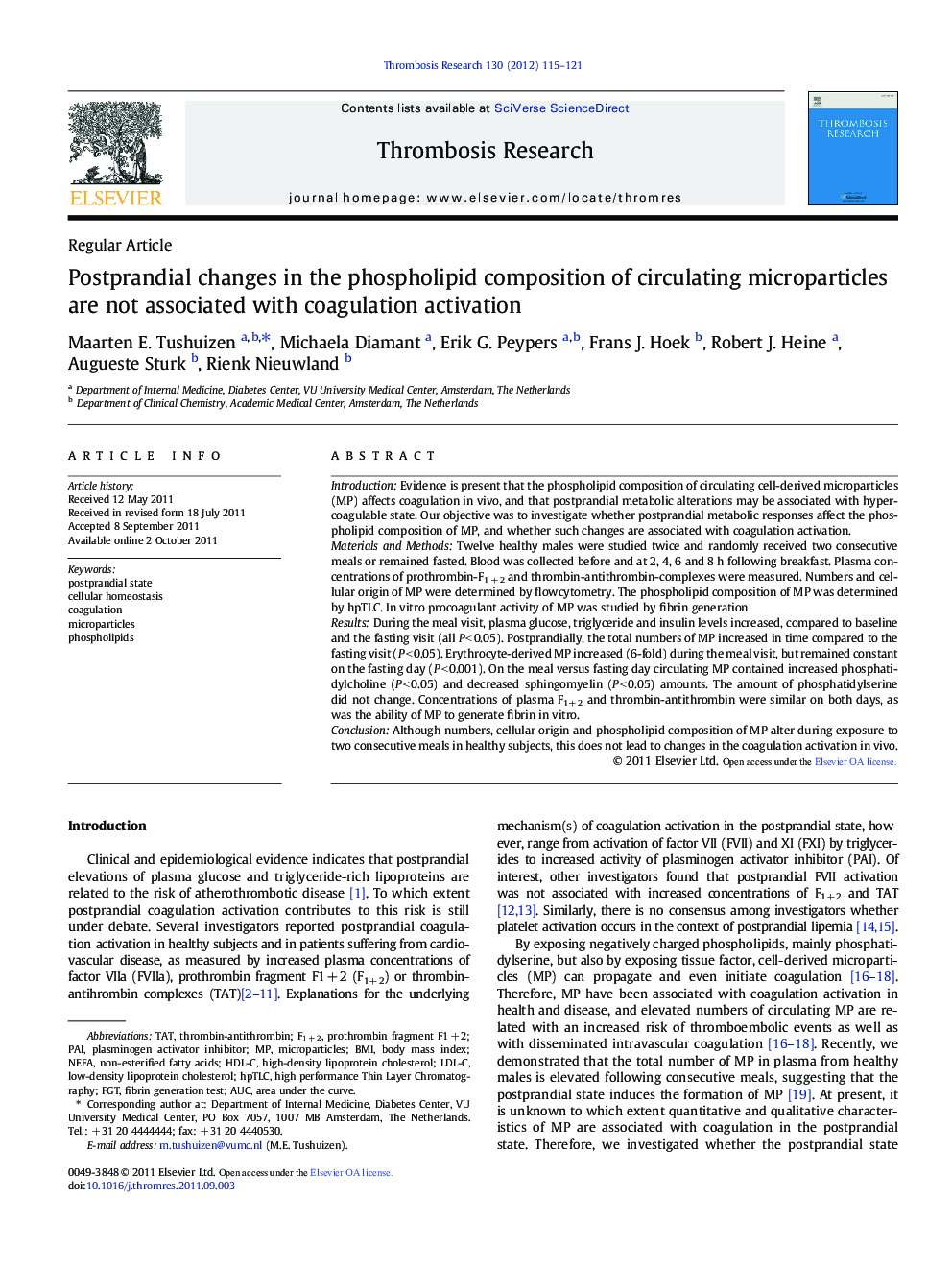| Article ID | Journal | Published Year | Pages | File Type |
|---|---|---|---|---|
| 6003578 | Thrombosis Research | 2012 | 7 Pages |
IntroductionEvidence is present that the phospholipid composition of circulating cell-derived microparticles (MP) affects coagulation in vivo, and that postprandial metabolic alterations may be associated with hypercoagulable state. Our objective was to investigate whether postprandial metabolic responses affect the phospholipid composition of MP, and whether such changes are associated with coagulation activation.Materials and MethodsTwelve healthy males were studied twice and randomly received two consecutive meals or remained fasted. Blood was collected before and at 2, 4, 6 and 8Â h following breakfast. Plasma concentrations of prothrombin-F1Â +Â 2 and thrombin-antithrombin-complexes were measured. Numbers and cellular origin of MP were determined by flowcytometry. The phospholipid composition of MP was determined by hpTLC. In vitro procoagulant activity of MP was studied by fibrin generation.ResultsDuring the meal visit, plasma glucose, triglyceride and insulin levels increased, compared to baseline and the fasting visit (all PÂ <Â 0.05). Postprandially, the total numbers of MP increased in time compared to the fasting visit (PÂ <Â 0.05). Erythrocyte-derived MP increased (6-fold) during the meal visit, but remained constant on the fasting day (PÂ <Â 0.001). On the meal versus fasting day circulating MP contained increased phosphatidylcholine (PÂ <Â 0.05) and decreased sphingomyelin (PÂ <Â 0.05) amounts. The amount of phosphatidylserine did not change. Concentrations of plasma F1Â +Â 2 and thrombin-antithrombin were similar on both days, as was the ability of MP to generate fibrin in vitro.ConclusionAlthough numbers, cellular origin and phospholipid composition of MP alter during exposure to two consecutive meals in healthy subjects, this does not lead to changes in the coagulation activation in vivo.
